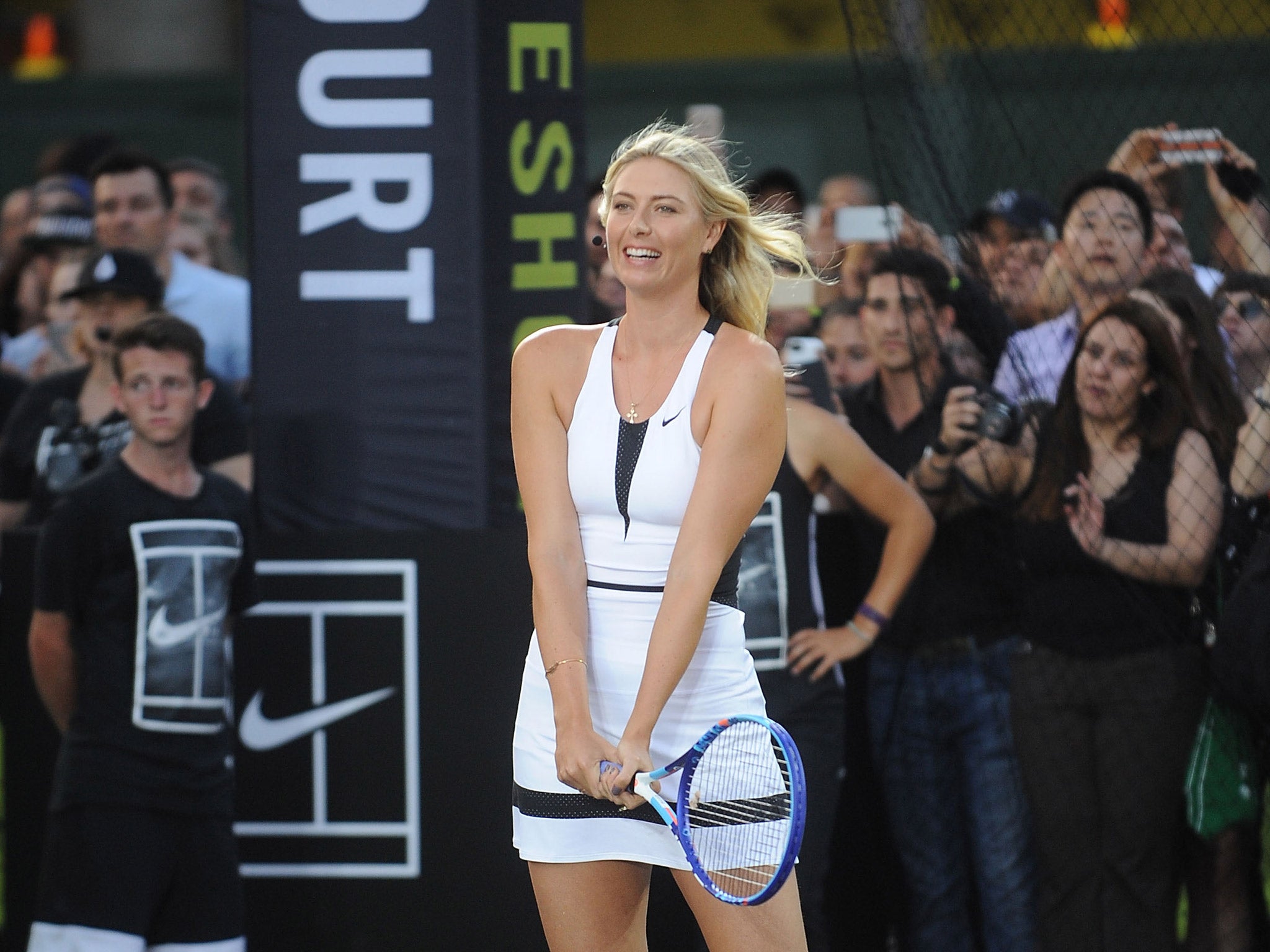Maria Sharapova: ITF denies allegations that doping hearing was 'not neutral' as ban is reduced to 15 months
Sharapova made the claims in her first television interview after the Court of Arbitration for Sport reduced her ban from two years to 15 months

Your support helps us to tell the story
From reproductive rights to climate change to Big Tech, The Independent is on the ground when the story is developing. Whether it's investigating the financials of Elon Musk's pro-Trump PAC or producing our latest documentary, 'The A Word', which shines a light on the American women fighting for reproductive rights, we know how important it is to parse out the facts from the messaging.
At such a critical moment in US history, we need reporters on the ground. Your donation allows us to keep sending journalists to speak to both sides of the story.
The Independent is trusted by Americans across the entire political spectrum. And unlike many other quality news outlets, we choose not to lock Americans out of our reporting and analysis with paywalls. We believe quality journalism should be available to everyone, paid for by those who can afford it.
Your support makes all the difference.The International Tennis Federation has denied allegations from Maria Sharapova that the hearing into her doping violation was "not neutral".
Sharapova made the claims in her first television interview after the Court of Arbitration for Sport reduced her ban from two years to 15 months.
The 29-year-old former Wimbledon champion tested positive for the heart drug meldonium in January and was then sanctioned by the ITF in June.
In the interview with American broadcaster PBS, Sharapova claimed the ITF has attempted to ban her for four years and that she is "starting to think" the sports governing body tried to make an example of her.
"I got a 24-month suspension, but they (the ITF) wanted four years for me," Sharapova said.
"I went through the ITF hearing, which was in front of an arbitration (panel) which was chosen by the ITF.
"I am at a hearing (in London) knowing the people I am speaking to were chosen by the people that I am actually in a fight with.
"They call that neutral? That is not neutral. CAS is neutral and this is what CAS has awarded to me."
In a statement released to Press Association Sport, the ITF defended its position.
"The ITF did not 'try to ban Ms Sharapova for four years'. The ITF took the position that it is the independent tribunal's responsibility to determine what the appropriate sanction should be," the statement read.
"This included the decision as to whether Ms Sharapova met the requirements set out in the tennis anti-doping programme - which are the same as those in the WADA code - for a reduction from the default four-year suspension for the use of a non-specified substance such as meldonium.
"The members of the independent tribunal, which consisted of a barrister as chairman and medical and scientific experts as co-members, are appointed by the ITF.
"However, Ms Sharapova's legal team was given the opportunity to object to any member of that tribunal, and they agreed in writing that they had no such objection."
Meldonium was added to WADA's banned substances list on January 1, having been on its monitoring list for all of 2015, and athletes and their entourages were warned several times by email that it was about to be prohibited - emails Sharapova did not read.
The result from CAS is a partial victory for the world's highest-earning female athlete and also a setback for the ITF and the World Anti-Doping Agency.
The three-man panel of CAS experts said it did "not agree with many of the conclusions of the (ITF) tribunal" and the federation has already seen the court reduce recent doping bans for Marin Cilic and Viktor Troicki.
The ITF was also criticised by the panel for not properly informing players of changes to WADA's banned list.
PA.
Join our commenting forum
Join thought-provoking conversations, follow other Independent readers and see their replies
Comments